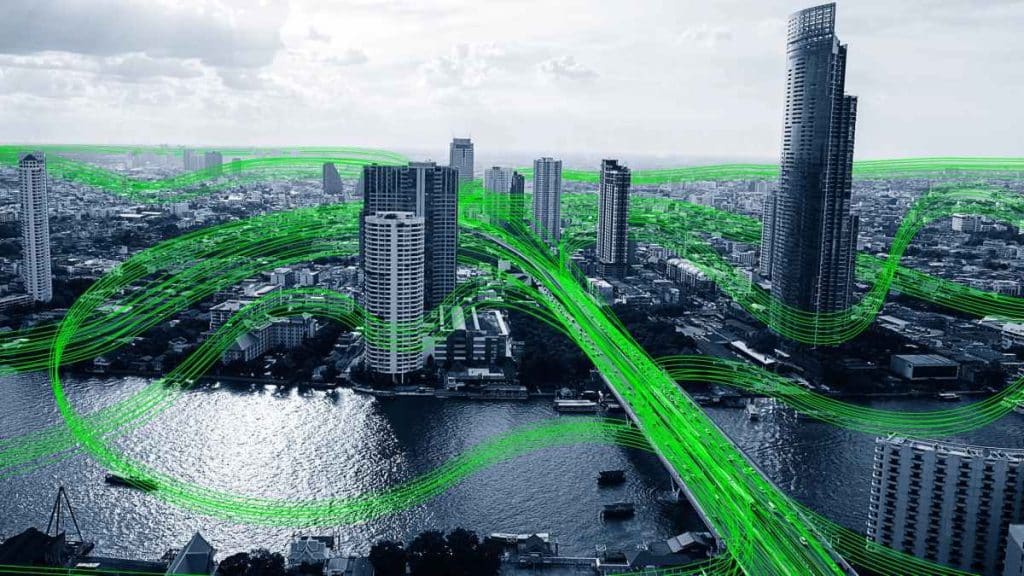Governments can only do so much in their efforts against climate change. Companies can lead a concentrated effort and realize a true net zero future.
The world is getting more and more frustrated with empty COP promises about their government’s hollow Net Zero statements. However, a clear line has been drawn as companies that cause environmental damage are now being called to take action.
John Kerry, US climate envoy recently introduced a program, called Green Energy Accelerator, which gives American businesses the ability to get carbon credits within developing regions. The generated revenue, Kerry hopes, can be used to power a greener energy source within those countries.
It’s a step in the right direction- corporations have access to near-limitless funds, and they have the ability to innovate. The responsibility falling into their hands is arguably humankind’s best hope of reaching a carbon-neutral economy. As it stands, the change can benefit their bottom line as well.
Large, multi-scale, and multinational organizations can be the change to a net zero effort. Although governments have the ultimate power, it’s often diluted by political paralysis, global energy crunches, and divided electorates. Past COPS were mostly a concerted effort to encourage political leaders to come up with ambitious climate goals. If there’s any progress to be made, it’s demanding the same commitment from prominent CEOs.
To emphasize the point, Italy’s GDP is lower than Apple’s market cap, while Brazil’s GDP is the same compared to Microsoft’s market cap. Saudi Arabia’s GDP and Meta’s are in a similar situation. These countries’ Net Zero statements are considered a soft front instead of being a rigorous and accountable pledge.
Furthermore, Meta boasts a global audience of 2.9 billion, which is more than twice the population in China. This global quarter population reach can be put to good use in nursing back our Earth to health.
The good news is that corporations are starting to take action. Roughly one-third of the top 2000 private and public global companies have put out a statement to zero carbon emissions through 2030. Unfortunately, according to research by Accenture, 93 percent of these companies are likely to miss their targets unless they make a greater effort in decarbonizing their processes.
A unified Net Zero standard could be the key to establishing trust and transparency in the corporate Green transition program. In fact, corporations that take Net Zero seriously can be the first to explore an opportunity in terms of connecting with their audiences. More than 80 percent of Millennials, Gen X and Gen Z age groups have taken a stance that companies should take part in the global decarbonization race and implement programs that can help the environment.
In addition, sustainable effort numbers are in the $30 trillion mark, reported by the World Economic Forum. Corporations should realize that there’s growth in the green economy.
Fossil fuel prices continue to rise, while sustainable sources plummet, which is reason enough for corporations to switch to fossil-free supply in their future-proofing strategy. Not taking action can also lead to ruin- Swiss Re, an insurance firm, says that climate change can equate to an economic loss of $23 trillion and reduce economic output by 11 to 14 percent. A failed Net Zero condition is an environmental and economic situation no one will want to be in.
Corporations should do more than just meet their Net Zero mark. Time and again has proved that governments are cumbersome machines slowed by bureaucracy. On the other hand, the private sector is well-known for being agile and innovative experts in their respective fields. It is companies that should lead the charge and not world governments.
Climate change is already bringing about catastrophic floods and natural disasters. The world is tired of empty promises from governments who pledge and miss their $100 billion funding programs.
The truth is that $100 billion is simply not enough to bring about Net Zero. The IPCC reports that $3.8 trillion annually is the magic number to achieve a successful transition to a low-carbon state in the supply-side aspect alone.
Surprisingly enough, money will not solve Net Zero in its entirety. The investment will have to go to the right places, namely the private sectors’ expertise and immense data networks to tackle the environmental crisis. The Google flood forecasting station in Bangladesh is a notable highlight, but these kinds of solutions are few and far in-between.
Companies, not countries are the hope of our planet. COP conferences tackling climate goals wrapped in a state of political paralysis are a source of frustration. It’s been proven that those who have the power can bring about real change. Corporations can act as custodians and ensure a green planet, collectively. With this shift in mindset, global companies should take the initiative for a Net Zero Earth and protect its inhabitants.

